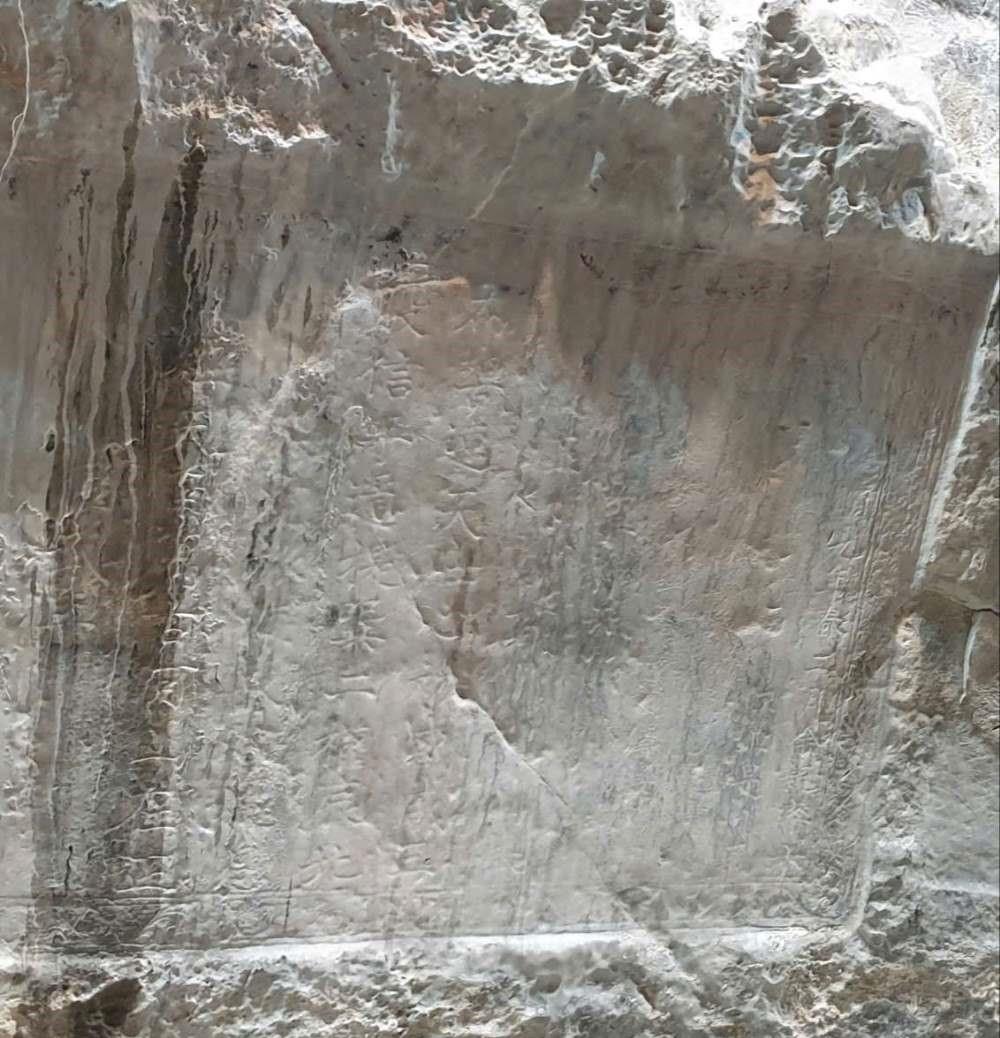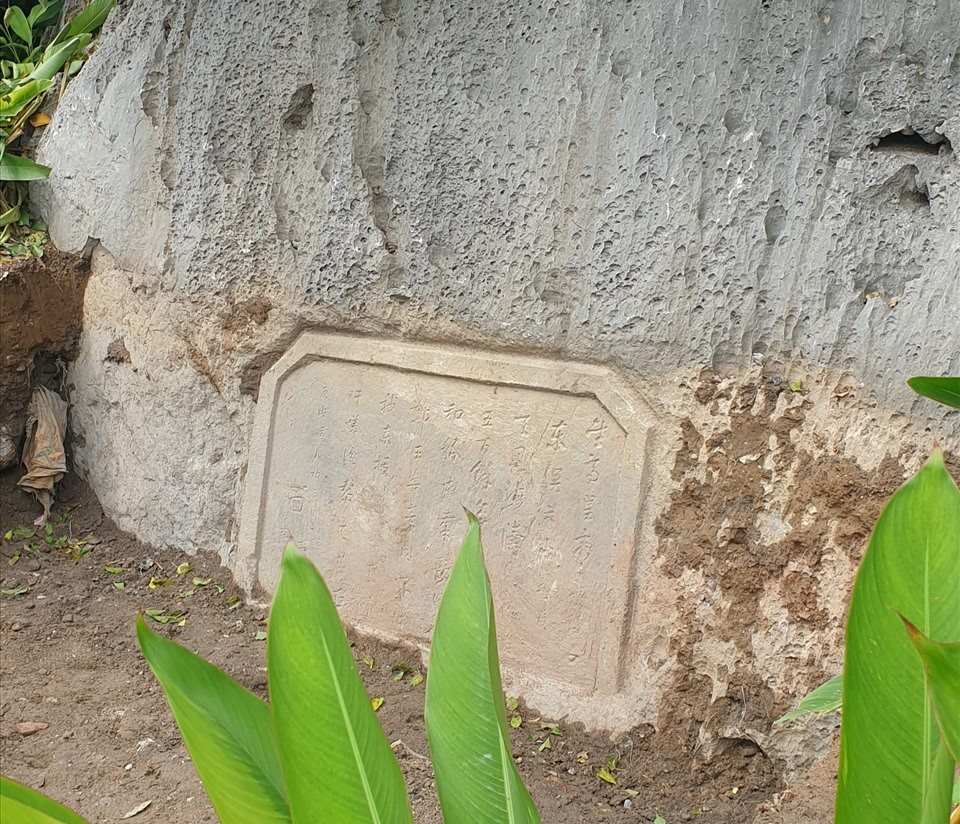Located in the center of Ha Long City, Bai Tho Mountain is not high (only about 200m) but is a mountain imbued with poetry as well as the revolutionary movement against French colonialism and in the resistance against America of the Indomitable Mining region.
This is a tourist destination that is hard to miss for international visitors, even after the mountain was closed since November 2017 following a fire on the mountain on the evening of November 1, 2017.
Previously, the mountain was called Truyen Dang. According to historical records, in the past, the mountain was an important watchtower at the Northeast border gate. In 1468, during a patrol here, King Le Thanh Tong had his poem carved on the cliff.
261 years later, in 1729, Lord An Do Vuong Trinh Cuong, when leading his army on a patrol here, saw the poem of King Le Thanh Tong, so he composed a seven-word eight-line poem and also carved it on the cliff.
Later, many other poems were carved on the cliff, including the poem of Nguyen Can - Governor of Quang Yen, now Quang Ninh province - carved on the cliff in 1910.
According to researchers, there are currently about 12 poems carved on Bai Tho cliff, but only 3 poems by King Le Thanh Tong, Lord Trinh Cuong and Nguyen Can have cultural and historical value.
According to poet Tran Nhuan Minh, Lord Trinh's poem was engraved in a higher position than King Le Thanh Tong's poem, so in his poem in 1910, Nguyen Can scolded Lord An Do Vuong Trinh Cuong for behaving like that.
A few years ago, when building the Ancient Poetry Temple on Poetry Mountain, the construction unit buried all of Nguyen Can's poems and after being discovered, Ha Long city dug up the soil and restored the poem.
Below are the contents of three famous poems carved on the cliff of Poetry Mountain:
The poem of King Le Thanh Tong was carved on a fairly flat cliff, about 2.5 meters above the ground. The seven-word eight-line poem consists of 56 Chinese characters, of which 21 are faded. Before the poem, there is a 49-character title, also faded. Luckily, the poem was recorded in ancient books, so that is the basis for researchers.

The original poem is as follows:
"The giant bed is surrounded by the sun and the river
The mountains and rivers are in chaos.
The first impression of the mind is filled with three senses.
The trustor spent two rights to deliver the proposal.
The North God of the Tiger and the Ginseng
The East Sea is calm and quiet
The mountains and rivers of the south are in heaven forever.
This is the year of the dragon.
The poem is translated as follows:
"The vast water, hundreds of rivers flowing into it
Mountains are scattered like chess pieces, cliffs reach to the sky.
There is decoration, but when starting a career, it still follows the person, like the Ham hexagram, the ninth three (already determined).
Now he can act with one hand, with power like the wind god.
In the north, the bandits who were as fierce as tigers and leopards were pacified.
Eastern sea, the smoke of war has gone out
Forever in the South, the country is forever strong
Now is the time to reduce martial arts and improve literature.
Meanwhile, Lord Trinh Cuong's poem was carved in the style of Hanh script, on a cliff sloping down to the ground, so it avoided the destruction of rainwater, and is still clear and easy to read.
Ha Minh's translation of Trinh Cuong's poem:
"The sea is vast and vast, the water is rising
Mountains sink into water, water overflows clouds
The hand of creation is so skillful
This place is a fairyland
The smell of the enemy's death is still somewhere
Grass flowers and mist are still here
The three armies were happy.
"Sea party, full cup of wine."
Nguyen Can's poem was engraved on December 3, Canh Tuat year (1910).

The original Chinese poem is as follows:
"The Holy Emperor wrote a poem on stone,
The eastern mountains are a hundred feet high.
The wind blows, the island strikes day and night,
Five hundred years and more, free chain
Who is the one who calls himself the emperor?
King Trinh was not willing to cooperate with the people.
I draw my sword and let my anger out.
"I am the subject of the Le dynasty!"
Translation of the poem by poet Tran Nhuan Minh:
“Emperor Thanh Tong wrote a poem on stone
Mountains in the East Sea are hundreds of meters high.
Wind and waves beat day and night
Yet more than 500 years have passed, the writing has not yet been lost.
Painting again, dare to claim to be royal brush; hmm, who is that?
Trinh Vuong's bad intention was to want to live together forever.
I come, sword drawn in anger and resentment
Alas for the king and his subjects of the Later Le dynasty!
